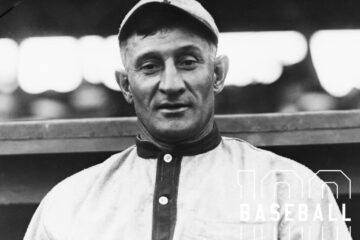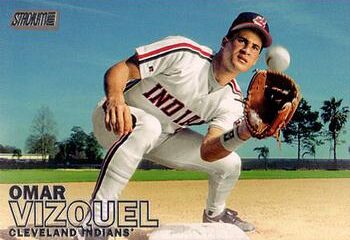The Hall of Fame Index: Who is the least qualified shortstop in the Hall of Fame?
In the positions we have seen so far, we have run across a number of prominent factors that seem to affect whether an unworthy player gets selected to be in the Hall of Fame. We see all those factors in full force with shortstops. We see players with impressive looking counting numbers that don’t stand up to scrutiny. We see players that have reputations that don’t necessarily stand up to scrutiny. We also see 19th century players that were selected for reasons that might escape us down the line.
The index helps us differentiate between the Hall of Famers that deserve their place and those that don’t. The Hall of Fame Index Part II focuses primarily on those players that are outside the Hall of Fame. We are focused here on players that the Veterans Committee selected. Which of these players is the least qualified Hall of Famer? In order to find that out, we will look at career value, peak value, offensive numbers, fielding numbers, and the BWAR MVP test.
Career Value
| BWAR | FWAR | WS/5 | Total | |
| George Davis | 84.4 | 84.6 | 79.6 | 248.6 |
| Arky Vaughan | 78.0 | 72.6 | 71.2 | 221.8 |
| Bobby Wallace | 76.3 | 62.4 | 69.0 | 207.7 |
| Alan Trammel | 70.7 | 63.7 | 63.6 | 198.0 |
| Pee Wee Reese | 68.2 | 61.3 | 62.8 | 192.3 |
| Joe Tinker | 53.2 | 55.5 | 51.6 | 160.3 |
| Joe Sewell | 53.9 | 48.1 | 55.4 | 157.4 |
| Dave Bancroft | 49.1 | 49.2 | 53.8 | 152.1 |
| Travis Jackson | 43.7 | 46.0 | 42.2 | 131.9 |
| Hughie Jennings | 42.3 | 44.9 | 42.8 | 130.0 |
| Phil Rizzuto | 42.0 | 41.3 | 46.2 | 129.5 |
If you haven’t read any of the previous articles, I have a more detailed breakdown of what the index is and how it works. However, you really don’t need a degree in advanced math. I certainly don’t have one. The general idea is that every voter (or fan) has in their head what a Hall of Famer looks like. Some will put the dividing line between Reese and Tinker. Others might put it after Bancroft.
The general idea is that we are looking for gaps. As we will see, there are historical factors behind the differences between a Jackson and Rizzuto. Rizzuto missed three prime seasons serving his country in World War II. So, the index is just a guide. This is why we include offense, fielding, and the BWAR MVP points. We also have to consider anecdotal evidence as well.
Peak Value
| BWAR | FWAR | WS/5 | Total | Index | |
| Vaughan | 66.8 | 61.9 | 61.6 | 190.3 | 412.1 |
| Davis | 50.5 | 50.4 | 54.8 | 155.7 | 404.3 |
| Wallace | 58.7 | 48.6 | 53.6 | 160.9 | 368.6 |
| Trammel | 54.7 | 50.7 | 45.4 | 150.8 | 348.8 |
| Reese | 56.2 | 51.1 | 49.2 | 156.5 | 348.8 |
| Tinker | 42.4 | 44.0 | 41.0 | 127.4 | 287.7 |
| Sewell | 44.8 | 40.3 | 45.0 | 130.1 | 287.5 |
| Bancroft | 41.1 | 40.5 | 40.4 | 122.0 | 274.1 |
| Rizzuto | 41.3 | 40.2 | 43.6 | 125.1 | 254.6 |
| Jennings | 40.5 | 43.7 | 39.4 | 123.6 | 253.6 |
| Jackson | 38.2 | 38.4 | 34.6 | 111.2 | 243.1 |
Peak value always adds a bit dimension to a player’s career. We see that Rizzuto leapfrogs Jennings and Jackson in total index. It isn’t a huge deal, but when we look at a question like this it makes a huge difference. We want to know what these players are when they were at their best. This is of course when things get really difficult as far as Rizzuto is concerned.
Rizzuto produced close to five wins a season in his first two full seasons before joining the military. After those two seasons he was closer to four wins the rest of the way. If we assume the worst and assume he would have produced four wins a season for those three years that would end up being an extra 36 wins for his career value (moving him from 129.5 to 165.5). His peak value might have increased slightly as well. If he had produced five wins a season that would end up really positively impacting both career and peak value.
I feel very comfortable questioning the qualifications of anyone under 300 index wins under normal circumstances, but given this fact it is difficult in Rizzuto’s case. This is why we look at the other data. We want to know what those voters were thinking. In some cases, there is a kernel of logical thinking there and in some cases there isn’t.
Offensive Numbers
| OPS+ | Rbaser | OW% | wOBA | |
| Vaughan | 136 | 12 | .696 | .399 |
| Davis | 121 | 20 | .624 | .366 |
| Jennings | 118 | 11 | .592 | .385 |
| Trammel | 110 | 25 | .559 | .343 |
| Sewell | 108 | 2 | .572 | .377 |
| Wallace | 105 | -13 | .554 | .333 |
| Jackson | 102 | 2 | .536 | .351 |
| Reese | 99 | 55 | .535 | .350 |
| Bancroft | 98 | -2 | .522 | .342 |
| Tinker | 96 | 10 | .518 | .319 |
| Rizzuto | 93 | 24 | .483 | .335 |
We notice that these numbers are mostly hovering around average which the exception of a few guys. We should indicate two things about this. First, average absolutely has value. WAR and win shares compare players with their replacement level alternative. You just don’t go out and nab an average player. There is a cost there. Secondly, like with some fielding metrics, we are comparing an entire MLB universe. A shortstop that is average compared to other players is probably above average when compared to other shortstops.
The question comes when we start talking about fame. If a player is average overall then is he really famous? Some players manage to accumulate numbers by being average over a long period of time, but unless they are ever good they just don’t capture our imagination. The offense and fielding numbers tell us where their value is coming from, but they also address the question of whether a particular player was ever really good. Of course, the MVP points do that as well.
Like with just career value, looking at just offensive numbers can be a bit misleading. For instance. Ozzie Smith was really no better than any of the guys towards the bottom of this list, but as we know he was outrageously good defensively. We will get a better concept of where these players stand historically when we look at both offense and fielding.
Fielding Numbers
| Rfield | DWAR | TZSS | DWS/5 | |
| Tinker | 180 | 34.3 | 180 | 22.7 |
| Davis | 146 | 24.0 | 106 | 20.0 |
| Jackson | 139 | 22.9 | 134 | 14.9 |
| Wallace | 133 | 28.7 | 105 | 22.8 |
| Reese | 117 | 25.6 | 107 | 22.2 |
| Rizzuto | 116 | 22.9 | 107 | 19.4 |
| Bancroft | 93 | 23.5 | 94 | 20.7 |
| Trammel | 77 | 22.7 | 80 | 18.5 |
| Jennings | 60 | 9.0 | 56 | 13.2 |
| Vaughan | 21 | 12.0 | 17 | 16.0 |
| Sewell | -4 | 9.1 | 16 | 18.0 |
Value is always relative to what your frame of reference is. Joe Sewell was an average fielding shortstop. He was an above average offensive shortstop. So, you could charitably call him above average overall. Is that good enough to get into the Hall of Fame? The rest of the players are bunched pretty close to each other, but are all considerably better than average when compared to the average shortstop of their time.
This is where life gets difficult. There is a definite statement made about their defensive value by itself, but what does that mean when we bring it back to the whole? How do offense and fielding interact? The old sages will prattle on about how the game is 50 percent hitting, 50 percent pitching, and 50 percent fielding. That’s stupid. Ignoring that it adds up to 150, it surmises that the distance between a good fielder and bad fielder is similar to the difference between a good hitter and bad hitter. Secondarily, pitching and fielding are two skills that are intertwined. They cannot exist independently.
One of the reasons why we use three sources of data (baseball-reference, Fangraphs, and win shares) is that all three have significant differences in how they conceive that interaction. So, the numbers above really have no cumulative affect other than a relative accounting of how each player exists in comparison with another.
BWAR MVP Points
| Top 10 | Top 5 | MVP | Points | |
| Vaughan | 2 | 5 | 3 | 61 |
| Davis | 4 | 5 | 1 | 47 |
| Jennings | 1 | 0 | 4 | 43 |
| Wallace | 5 | 3 | 1 | 40 |
| Reese | 5 | 3 | 0 | 30 |
| Trammel | 2 | 4 | 0 | 26 |
| Bancroft | 2 | 4 | 0 | 26 |
| Sewell | 2 | 3 | 0 | 21 |
| Jackson | 2 | 3 | 0 | 21 |
| Rizzuto | 2 | 1 | 1 | 21 |
| Tinker | 5 | 1 | 0 | 20 |
When we consider all of the numbers in concert we get a pretty accurate picture of a player and what the Veterans Committee was thinking. Hughie Jennings was arguably the best player in baseball for a five year period. Unfortunately, he didn’t do much beyond that, but that by itself is a pretty compelling reason to consider him for the Hall of Fame. I’m not sure if it throws him over the top, but it is a compelling argument.
On the flip side, when we take a look at a Travis Jackson we see that his career was also short, but he just didn’t achieve that top end brilliance like other players did. Mind you, no player really sticks out here like some players at other positions. All of the players bring something to the table, but many just seem to come up short. Still, Jackson is in last in the index and there doesn’t seem to be any compelling reason not consider him the least fit.



